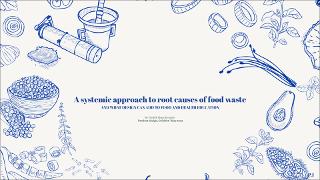| dc.description.abstract | This thesis is written as part of the Master’s program in Product Design at Oslo Metropolitan University in spring 2022. The thesis investigates the households behaviours towards food waste of edible food. As it takes a systemic approach combined with behavioral model such as the comprehensive action determination model to understand the relationship between the influence in our behavior. As it takes a deep dive into how food waste occurs and why, with tools such as giga mapping its taking an approach to understand how aspects such as, uncertainty, food value, consumer life situation, unfamiliar food in our routines and knowledge affect our behaviour. As it investigates how we can improve knowledge that is lost to the younger generation, but the elderly generation possess - the ability to assess if food is still edible. The solution looks into how the school can be used as a platform to influence habits within food practice in the short and long term. Based on findings it has been suggested to develop a platform where teachers can use a framework for their class, as this is a solution made for food and health teachers, and other teachers in school. As the solution touches two of three interdisciplinary themes that are integrated into the the school curriculum, this is prioritised because they touch on key societal challenges that are relevant over time. The teaching material is focusing on how we can increase an individual threshold of acceptance. This is by creating good experience around food that we view as unwanted. | en_US |
